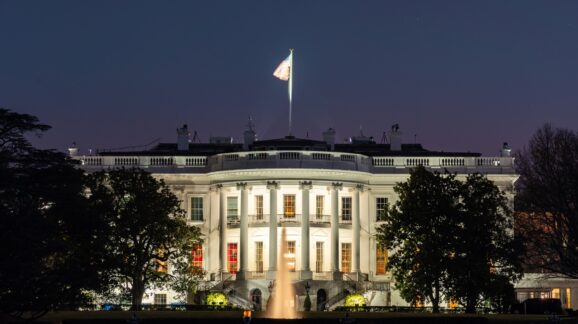Can moderators ask debate questions that don’t presume a progressive policy agenda?

Photo Credit: Getty
Numerous policy issues are shaping this year’s first presidential debate between Joe Biden and Donald Trump, as well as the entire campaign atmosphere. These include clashes over the economy and its subset of issues like trade, taxes, regulation, inflation, and income inequality. Raging also are social and legal policy disputes over the Supreme Court, abortion, immigration, and more.
The press is widely seen as having a pronounced leftward tilt. This leaning is also reflected in academia, whether administrative workers or faculty. One might reasonably wonder if it’s plausible for elite television journalists to pose debate questions to candidates – Republican or Democratic – that challenge the progressive mindset.
The fixtures of big government are uniformly taken for granted in the mainstream journalistic setting, meaning that in the campaign cycle questions are asked in a way that does not merely teases out affirmation of alliance with big-government remedies, but assumes reflexively that such remedies are desirable.
But what would happen if the questions came from the opposite perspective; that of individual and economic liberty? That would be almost impossible. Here is just a sample of questions that might be considered crucial for balanced debate on the economic front, but that one is highly unlikely to hear.
- Which cabinet department agencies, independent agencies, and government programs do you pledge to eliminate?
- How much smaller in percentage terms will the federal government be after your term?
- After eliminating Obamacare and recently imposed price controls on prescription drugs, how will you reduce the influence of Washington in healthcare to return decisions to states, localities, individuals, and private arrangements?
- How will you reduce dependency on government entitlements in areas such as childcare, college education, retirement, housing, and healthcare?
- In what ways will you encourage non-subsidized, truly “shovel-ready” private infrastructure projects as distinct from subsidies and public-private partnerships?
- What do you consider to be the best strategy for abolishing the antitrust statutes?
- How will you transfer vast acreages of government-owned land to private or state hands for better resource management and species protection?
Such framing is alien to progressive-leaning pundits. Therefore, political debates rarely get to the root issues of the proper limits on government intervention in economic and social matters. Instead, they push the candidates to promise more.
The press’s biases almost uniformly lead to questions that support a larger governmental role, without considering the potential benefits of minimizing government intervention. Checking in on the White House press briefing and watching the questions that journalists ask on any random day will affirm that the entire thrust of the press core is for more wealth transfers and more regulation by a more powerful central government. What makes this more worrisome today is that journalists also simultaneously proclaim to be concerned about mis-, dis- and mal-information.
For a truly balanced and comprehensive debate during presidential campaign season or at any other time, it’s essential to ask questions that challenge the progressive agenda and deeply flesh out the merits of individual and economic liberty.